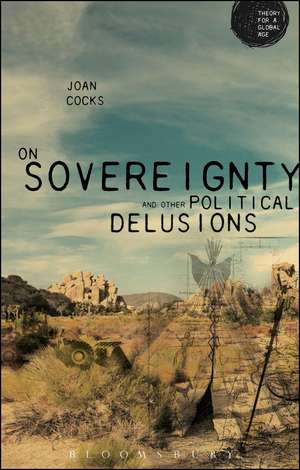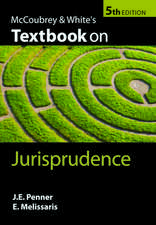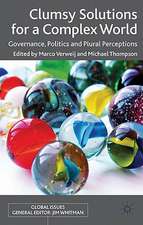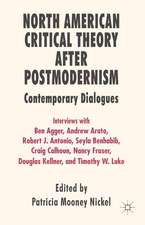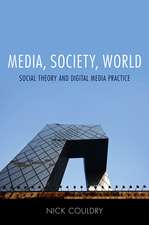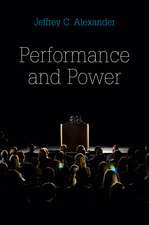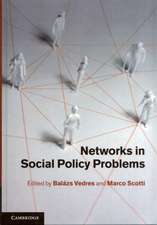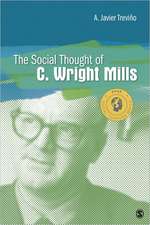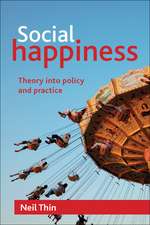On Sovereignty and Other Political Delusions: Theory for a Global Age Series
Autor Professor Joan Cocksen Limba Engleză Paperback – 22 oct 2014
| Toate formatele și edițiile | Preț | Express |
|---|---|---|
| Paperback (1) | 177.67 lei 6-8 săpt. | |
| Bloomsbury Publishing – 22 oct 2014 | 177.67 lei 6-8 săpt. | |
| Hardback (1) | 655.67 lei 6-8 săpt. | |
| Bloomsbury Publishing – 22 oct 2014 | 655.67 lei 6-8 săpt. |
Preț: 177.67 lei
Preț vechi: 206.90 lei
-14% Nou
Puncte Express: 267
Preț estimativ în valută:
33.100€ • 35.57$ • 28.24£
33.100€ • 35.57$ • 28.24£
Carte tipărită la comandă
Livrare economică 02-16 aprilie
Preluare comenzi: 021 569.72.76
Specificații
ISBN-13: 9781780933542
ISBN-10: 1780933541
Pagini: 200
Dimensiuni: 138 x 216 x 12 mm
Greutate: 0.29 kg
Editura: Bloomsbury Publishing
Colecția Bloomsbury Academic
Seria Theory for a Global Age Series
Locul publicării:London, United Kingdom
ISBN-10: 1780933541
Pagini: 200
Dimensiuni: 138 x 216 x 12 mm
Greutate: 0.29 kg
Editura: Bloomsbury Publishing
Colecția Bloomsbury Academic
Seria Theory for a Global Age Series
Locul publicării:London, United Kingdom
Caracteristici
Winner of the 2015 David Easton Prize, awarded by the American Political Science Association. In the words of the jury, 'The clarity of Cocks' thinking and insight serves as a model of how to apply political theory to questions of history and contemporary politics.'
Notă biografică
Joan Cocks is Professor of Politics on the Ford Foundation at Mount Holyoke College, Massachusetts, USA. She is the author of Passion and Paradox: Intellectuals Confront the National Question (2002) and The Oppositional Imagination: Feminism, Critique and Political Theory (1989 and 2013), as well as numerous articles on Marxism, feminism, nationalism, cosmopolitanism, sovereignty, and violence.
Recenzii
[D]eeply engaging.
Joan Cocks is the best writer working today in political theory. This book, striking evidence of a heartful mind, charts the abundant human costs of casting sovereignty as freedom and calls instead for a turn to 'natural freedom' - the freedom to 'indulge in all the sensory delights to be had in the physical world around us, including the delights of meeting natural life forms that are entrancing because they are neither like us nor for us.' This is a brilliant, inspiring work that I read with pleasure in one sitting.
Reflecting on the twentieth century, you may have suspected that freedom through sovereignty was a snare and delusion. If so, this is the book that will 'nail' it for you. Joan Cocks gives us a lucid, original, and carefully argued demonstration of how the quest for sovereign freedom in the United States and Israel entailed, necessarily, the dispossession and erasure of other life worlds and cultural identities. This is political history and philosophy at its most convincing.
In the best tradition of political thinking and engagement, this book is a deep meditation on the concept of sovereignty. It helps us understand why this concept and the actions that follow from it need to be jettisoned. With sustained moral seriousness, it shows how the idea of mastering peoples and places is now a fantasy with dire implications for human beings and for the earth.
Joan Cocks is the best writer working today in political theory. This book, striking evidence of a heartful mind, charts the abundant human costs of casting sovereignty as freedom and calls instead for a turn to 'natural freedom' - the freedom to 'indulge in all the sensory delights to be had in the physical world around us, including the delights of meeting natural life forms that are entrancing because they are neither like us nor for us.' This is a brilliant, inspiring work that I read with pleasure in one sitting.
Reflecting on the twentieth century, you may have suspected that freedom through sovereignty was a snare and delusion. If so, this is the book that will 'nail' it for you. Joan Cocks gives us a lucid, original, and carefully argued demonstration of how the quest for sovereign freedom in the United States and Israel entailed, necessarily, the dispossession and erasure of other life worlds and cultural identities. This is political history and philosophy at its most convincing.
In the best tradition of political thinking and engagement, this book is a deep meditation on the concept of sovereignty. It helps us understand why this concept and the actions that follow from it need to be jettisoned. With sustained moral seriousness, it shows how the idea of mastering peoples and places is now a fantasy with dire implications for human beings and for the earth.
